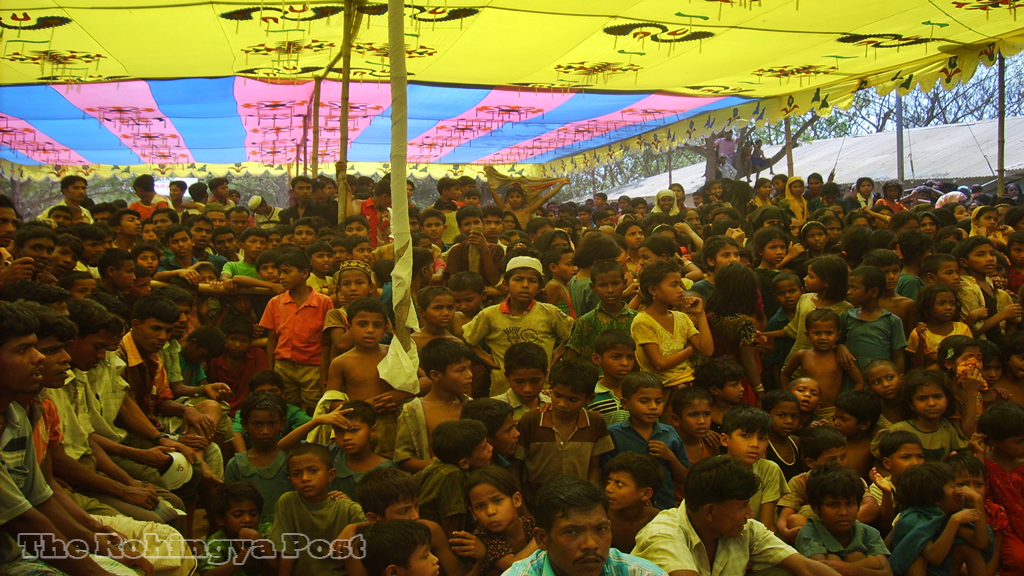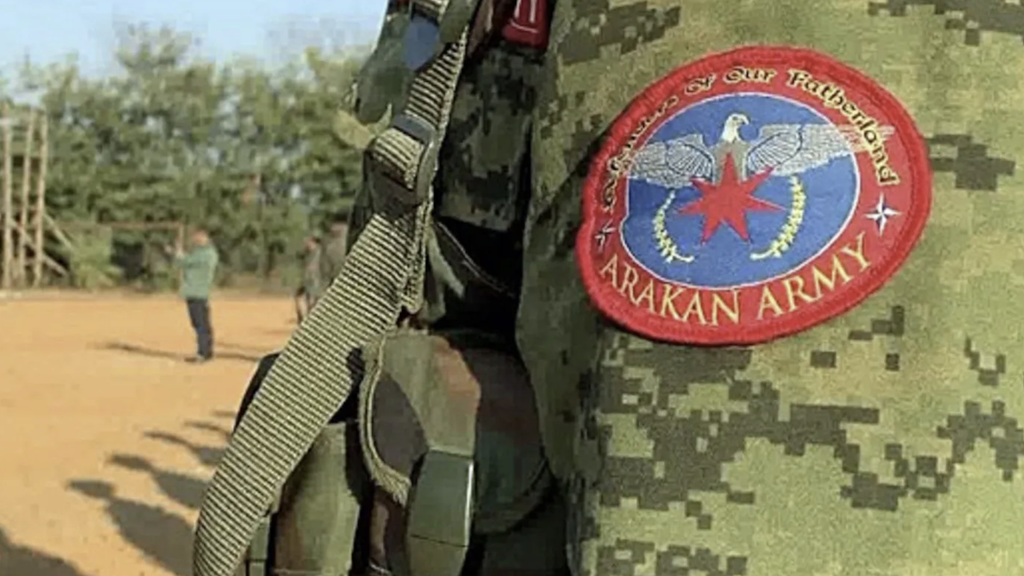
Rohingya Refugees Children and Their Rights to Education
- 22/02/2020
- 0
By Aman Ullah
The National Taskforce set up by the Government of Bangladesh has decided in its recent meeting that the Rohingya children living in Bangladesh refugee camps will be allowed to receive a formal education.
Nearly one million Rohingya, including more than half a million children, live in the squalid and crowded camps near the southeastern border with Myanmar, where many had fled from in 2017 after a brutal military crackdown.
The children were previously barred from studying the curriculum used in Bangladesh and Myanmar, and instead received primary education in temporary learning centers set up by the UN children’s agency UNICEF.
Local media reported that a pilot programme involving more than 10,000 students would be launched soon, with UNICEF and Dhaka jointly designing the curriculum.
The refugee children will be schooled in Myanmar history and culture up to age 14, and will also receive skills training so they can take up jobs back in Myanmar when they return home, the foreign ministry said.
Nearly half of the 540,000 Rohingya refugee children in Bangladesh under the age of 12 are missing out on school, according to a 2019 report by the UN.
Earlier last year, the government banned donor-funded schools inside the refugee camps from imparting formal education to students.
Rights activists have long been campaigning that depriving such a vast group of their fundamental rights could make them vulnerable to radicalization.
Human Rights Watch (HRW), a prominent international watchdog group, in its report on 3 December 2019 stated that, the Bangladeshi government has been depriving nearly 400,000 Rohingya Muslim refugee children the right to education.
Basing the allegation on interviews with teachers, aid workers, government officials and more than 150 Rohingya refugees in Bangladesh, HRW says Rohingya children are prohibited from enrolling in local schools.
The Government of Bangladesh only allows informal education to the Rohingya children who arrived after August 2017. Education in the 27 camps in Bangladesh is delivered by a range of International aid agencies (INGO) community based organizations (CBO) and other national development organizations. The United Nations Children’s Fund (UNICEF) oversees and coordinates all programming – including curriculum design, teacher training and the development of a new learning framework.
Many agencies are obliged to seek approval for any activities through the Bangladesh Refugee Relief and Repatriation Commission (RRRC) and formal education is not permitted.However In practice many classes are permitted to be taught in shelters or religious education in madrassas.
Curriculum development does happen, however the government does not permit any instruction in the Bangla language.
The denial of education to Rohingya children is an entrenched policy that Bangladesh has imposed for decades. Rohingya fled to Bangladesh from previous waves of persecution in 1978 and 1991-92. Bangladeshi authorities coerced most of these Rohingya to return to Myanmar and registered a fraction of those who remained as refugees and their children born in Bangladesh. Bangladesh permitted UNHCR to introduce a non-formal, English version of the Bangladeshi school curriculum for registered refugee children up to class 8, and are barred from attending schools outside the camps.
The Bangladesh government not only banned on formal education, to Rohingya children who fled after August 2017 but also barred teaching to them with the non-formal version of the curriculum that was allowed in the older, UNHCR-run camps for registered refugees. As to the Myanmar curriculum, Myanmar authorities have not approved its use for Rohingya refugees in Bangladesh, which means that these children cannot take national examinations or receive any certification for their schooling.
Hence, the policy of Bangladesh that forbidding formal education and the learning of Bangla language restricts both the choice and availability of education as well as the construction of adequate schools, delivery of teacher trainings and the broader operations of international and local agencies is a key barrier to the education of these refugees children. The Right to Education acts as an obligation on states and providers to deliver minimum standards in education so as to equip people with the political, intellectual and social tools needed for life. However, decisions about education – and how the Right to Education is realized often have some of the most long-term impacts on livelihoods, access to labour and future pathways. Any long-term approach to fulfilling the Right to Education must be acceptable and contextually appropriate to the Rohingya community.
However, now authorities in Bangladesh in partnership with the United Nations will expand educational programs for hundreds of thousands of Muslim Rohingya children living in refugee camps who are currently receiving only basic lessons.
The children, who fled with their families from neighboring Myanmar to camps in Bangladesh’s Cox’s Bazar district, now attend about 1,500 learning centers run by UNICEF that provide basic education, drawing and other fun activities. Under the new program starting in April, they will receive a formal education using a Myanmar curriculum for grades 6 to 9, the U.N. said in a statement.
“We believe this is a positive step and a clear indication of the commitment by the government of Bangladesh to ensure access to learning for Rohingya children and adolescents, as well as to equip them with the right skills and capacities for their future and return to Myanmar when the conditions allow,” the U.N. said.
This is a very positive and welcoming step and it was hailed by many NGOs, INGOs and human rights bodies. Rohingya refugees reacted with surprise and joy to this news that Bangladesh would provide formal education for their children, two and a half years after they were forced to flee Myanmar.
Rahima Akter, a 21-year-old Rohingya refugee, who was expelled from Cox’s Bazaar International University because of her “Rohingya” welcomed the move. “I wholeheartedly praise the Bangladesh government for allowing Rohingya children to get education, which is the fundamental human right of every citizen in every country. Refugees have the right to education too,” she told Al Jazeera. Akter said it would be better, if the government gradually allows the refugees to have education beyond grade nine. “Without proper education, a person doesn’t have any bright future.”
“Oh my god! Bangladesh is letting us be educated!” Mohammed Zobayer, who works as a teacher in one of the learning centers, said after learning about the decision. “I’m so excited. This is so good. I can’t express my happiness.” Zobayer, 19, noted that most of the refugee children have already lost two academic years. “Now they can chase their dreams. It is like having a new life,” he added.






